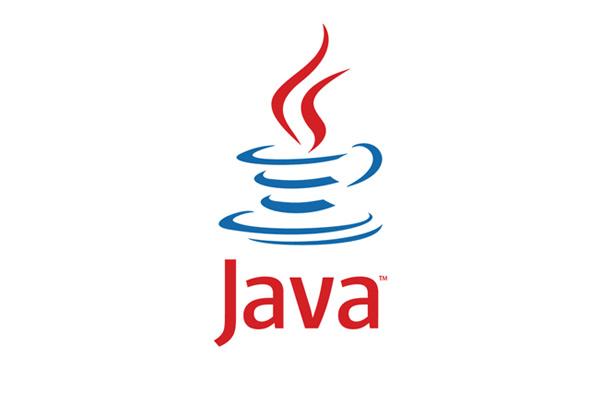C++标准模板(STL)
- C++标准模板(STL) 推荐度:
- 相关推荐

C++标准模板(STL)
类型特性
类型特性定义一个编译时基于模板的结构,以查询或修改类型的属性。
试图特化定义于 <type_traits> 头文件的模板导致未定义行为,除了 std::common_type 可依照其所描述特化。
定义于<type_traits>头文件的模板可以用不完整类型实例化,除非另外有指定,尽管通常禁止以不完整类型实例化标准库模板。
受支持操作
继承自 std::integral_constant
成员常量
| value [静态] | 若 T 可析构则为 true ,否则为 false(公开静态成员常量) |
成员函数
| operator bool | 转换对象为 bool ,返回 value(公开成员函数) |
| operator() (C++14) | 返回 value(公开成员函数) |
成员类型
| 类型 | 定义 |
value_type | bool |
type | std::integral_constant<bool, value> |
检查类型是否拥有未被弃置的析构函数
std::is_destructible,
std::is_trivially_destructible,
std::is_nothrow_destructible| template< class T > | (1) | (C++11 起) |
| template< class T > | (2) | (C++11 起) |
| template< class T > | (3) | (C++11 起) |
1) 若含有 T 类型成员对象的虚构结构体拥有非删除的析构函数,则提供等于 true 的成员常量 value 。对于任何其他类型, value 为 false 。 | (C++14 前) |
| 1) 若 若 若 | (C++14 起) |
2) 同 1) ,并且 std::remove_all_extents<T>::type 要么是非类类型,要么是拥有平凡析构函数的类类型。
3) 同 1) ,但析构函数为 noexcept 。
T 应为完整类型、(可为 cv 限定的) void ,或未知边界数组。否则行为未定义。
若上述模板的实例化直接或间接地依赖于不完整类型,并且如果假如使该类型完整,实例化就会产生不同的结果,则行为未定义。
辅助变量模板
| template< class T > | (C++17 起) | |
| template< class T > | (C++17 起) | |
| template< class T > | (C++17 起) |
注意
因为若析构函数在栈回溯中抛出异常则 C++ 程序终止(通常是无法预期的),所有实用的析构函数均为不抛出,即使它们不声明为 noexcept 。所有 C++ 标准库中能找到的析构函数都是不抛出的。
可平凡析构对象所占用的存储可以重用而无需调用析构函数。
调用示例
#include <iostream>
#include <string>
#include <type_traits>struct Foo
{std::string str;~Foo() noexcept {}
};struct Bar
{~Bar() = default;
};int main()
{std::cout << std::boolalpha;std::cout << "int is destructible? "<< std::is_destructible<int>::value << std::endl;std::cout << "int is_trivially_destructible? "<< std::is_trivially_destructible<int>::value << std::endl;std::cout << "int is_nothrow_destructible? "<< std::is_nothrow_destructible<int>::value << std::endl;std::cout << "std::string is destructible? "<< std::is_destructible<std::string>::value << std::endl;std::cout << "std::string is_trivially_destructible? "<< std::is_trivially_destructible<std::string>::value << std::endl;std::cout << "std::string is_nothrow_destructible? "<< std::is_nothrow_destructible<std::string>::value << std::endl;std::cout << "Foo is destructible? "<< std::is_destructible<Foo>::value << std::endl;std::cout << "Foo is_trivially_destructible? "<< std::is_trivially_destructible<Foo>::value << std::endl;std::cout << "Foo is nothrow destructible? "<< std::is_nothrow_destructible<Foo>::value << std::endl;std::cout << "Bar is destructible? "<< std::is_destructible<Bar>::value << std::endl;std::cout << "Bar is trivally destructible? "<< std::is_trivially_destructible<Bar>::value << std::endl;std::cout << "Bar is nothrow destructible? "<< std::is_nothrow_destructible<Bar>::value << std::endl;return 0;
}
输出
- 论文精读MediaPipe Hands
- 1688往微信小程序自营商城铺货商品采集API接口
- 【华为OD题库
- Android 12 intent
- OpenSIPS自定义统计项目
- 实现定时巡检接口,测试不通过时自动发邮件
- [pytorch]设备选择以及卷积神经网络的应用
- 千兆路由只有200M,原来是模式选择不对,也找到了内网不能通过动态域名访问内部服务的原因
- MySQL总结(更新中...)
- CodeWhisperer 使用经验分享
- 免费群学习网络安全
- DTC Network旗下代币DSTC大蒜头即将上线,市场热度飙升
- 记录一个错误
- 【电路笔记】
- 【网络奇缘】我和英特网再续前缘
- Vmware虚拟机重装 虚拟机能ping通主机,而主机不能ping通虚拟机的问题
- nodejs+vue+python+PHP+微信小程序
